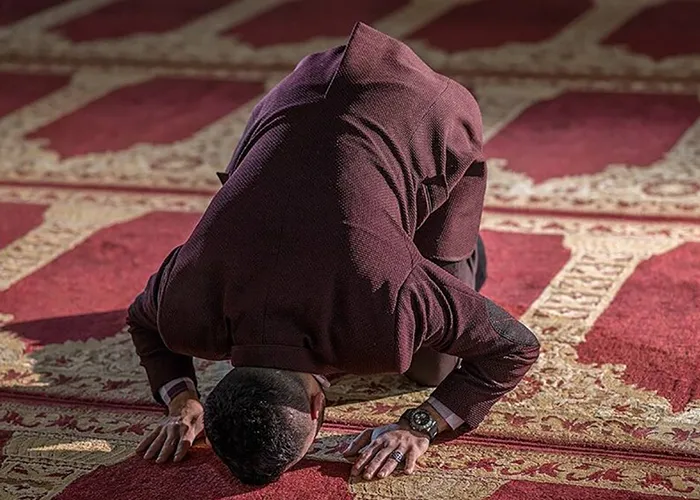Editorial – volume01 Issue18
Social Responsibility in Islam: An Inherent Duty
In Islam, every human being is seen as a responsible agent, entrusted with duties that encompass three fundamental domains: responsibility towards oneself, towards others, and towards Allah. Of these, social responsibility towards others holds a central place in fostering justice, compassion, and harmony in society. As the focus of this issue of the magazine is “Social Responsibility in Islam,” we will explore this aspect in greater detail.
Islam teaches that individuals are not isolated beings but members of a broader community. Their actions affect not only their own lives but also those around them. Hence, the question arises: What responsibilities do humans have towards others? Social responsibility in Islam can be understood through several dimensions, each of which underscores the depth of care, justice, and moral conduct that Islam mandates in human interactions. These responsibilities are broad and extend across six main areas and several sub-areas, as summarised in the figure below: Each of these dimensions is further outlined in the below.
- Legal Responsibilities Towards Others:
Islam places great emphasis on legal responsibilities, which involve adherence to the laws and regulations of the land in which one lives. Muslims are required to honour contracts, treat clients with respect, and fulfil the rights of colleagues and associates, including those indirectly connected to their work. When placed in a position to judge or make decisions affecting others, a person must do so with fairness and precision. Upholding justice in personal and professional relationships is a cornerstone of Islamic legal responsibility.
- Social Responsibilities Towards Others:
Islam calls for a broad range of social and civic responsibilities. One of the most important is the fight against racism and discrimination. In the Islamic worldview, race, nationality, or skin colour do not confer superiority upon any individual. The only criterion for true honour, as the Qur’an states, is one’s piety:
إِنَّ أَكْرَمَكُمْ عِنْدَ اللَّهِ أَتْقَاكُمْ (الحجرات، ۱۳)
“Indeed, the most honourable of you in the sight of Allah is the most righteous” (Qur’an, 49:13).
Muslims are also charged with enjoining good and forbidding wrong (Amr bil Ma’ruf wa Nahi anil Munkar), which means they cannot remain indifferent to the actions of others, whether positive or negative. All members of society share in the consequences of good or bad behaviour. Furthermore, keeping promises and being trustworthy are essential aspects of social responsibility, as is showing respect for the beliefs and values of others, a principle deeply rooted in the teachings of the Qur’an and the Sunnah of the Prophet and Ahlul-Bait (peace be upon them).
- Environmental Responsibilities:
Humans are also held accountable for how they treat the environment. Islam provides specific guidelines on the treatment of animals, emphasising that they too have rights that must be respected. Likewise, individuals are responsible for maintaining a clean environment and using natural resources in a balanced and sustainable manner, avoiding overconsumption or wastefulness. The natural world is a trust from Allah SWT, and humans are its stewards, responsible for preserving it for future generations.
- Financial and Economic Responsibilities:
One of the key financial obligations in Islam is to support those in need, regardless of whether they openly ask for help. This aid can take various forms, including charity (Sadaqah), almsgiving (Zakat), and other financial obligations like Khums and Kafarah. Islam also encourages ensuring that the basic needs of others, such as food and shelter, are met. Not only should Muslims help fellow humans in need, but they should also ensure the well-being of animals, ensuring they are fed and cared for.
- Cultural and Educational Responsibilities:
In Islam, one of the significant responsibilities every individual has towards society is to help eradicate ignorance and promote knowledge. Imam Ali (peace be upon him) famously said:
زكاة العلم نشره (غرر الحكم: ٥٤٤٤).
“The charity of knowledge is to spread it.” Every person is responsible for sharing their knowledge and skills with others. Additionally, combating superstition and false beliefs is another educational responsibility that Muslims must uphold. Ensuring that the society is based on truth and knowledge, rather than falsehood, is key to a thriving, just community.
- Political Responsibilities:
From a political perspective, one of the greatest duties of any individual in society, according to Islam, is to stand against injustice. Injustice against one person is an injustice against the entire community, and thus all are responsible for ensuring that no one’s rights are violated. Another critical political responsibility is to maintain the unity and cohesion of the community. Participating in the political processes that shape the future of society, whether through voting, leadership, or activism, is also a key responsibility in Islam. The teachings of the Qur’an and the Prophet (peace be upon him) stress the importance of striving for justice and working collectively for the common good.
Conclusion:
Social responsibility is not just an ethical concept in Islam but a religious obligation that permeates every aspect of life. From legal and social responsibilities to environmental, financial, educational, and political duties, Islam teaches that every human has a role in contributing to the welfare of society. As Muslims, we must recognise that our responsibility extends beyond ourselves and our immediate families—it encompasses the entire community and the world we live in. By fulfilling these responsibilities, we honour our role as stewards of the Earth and servants of Allah, creating a society based on justice, compassion, and mutual respect.
editor's pick
news via inbox
Subscribe to the newsletter.





